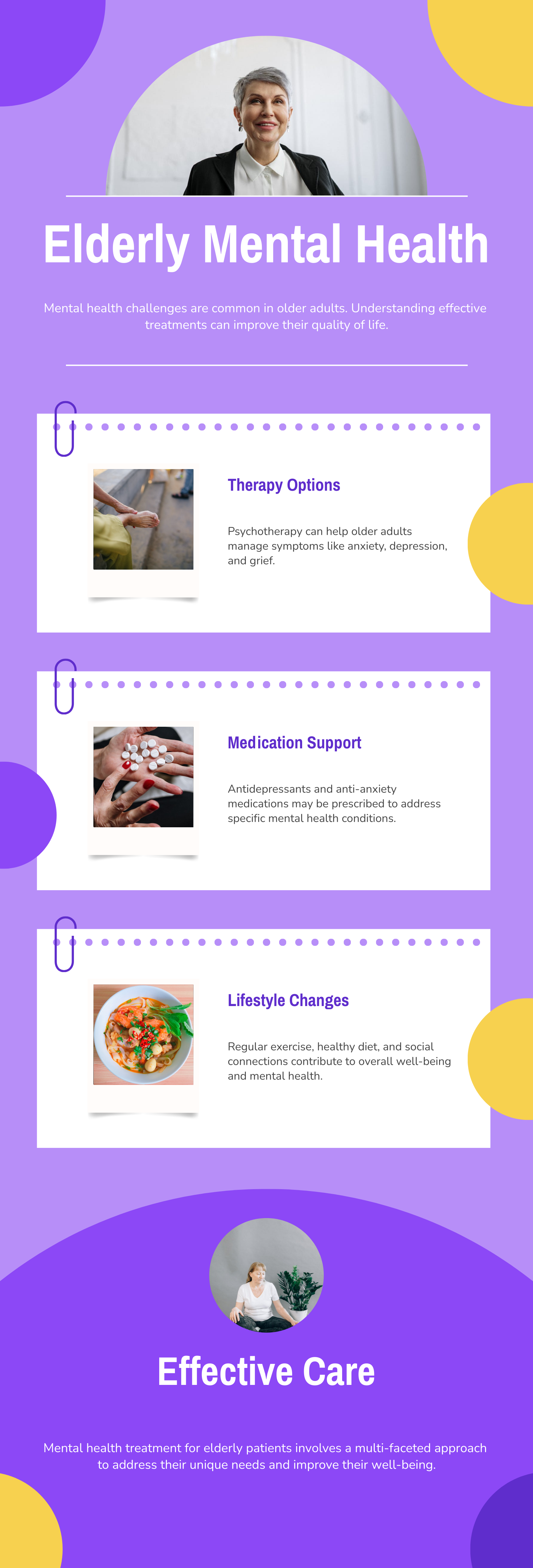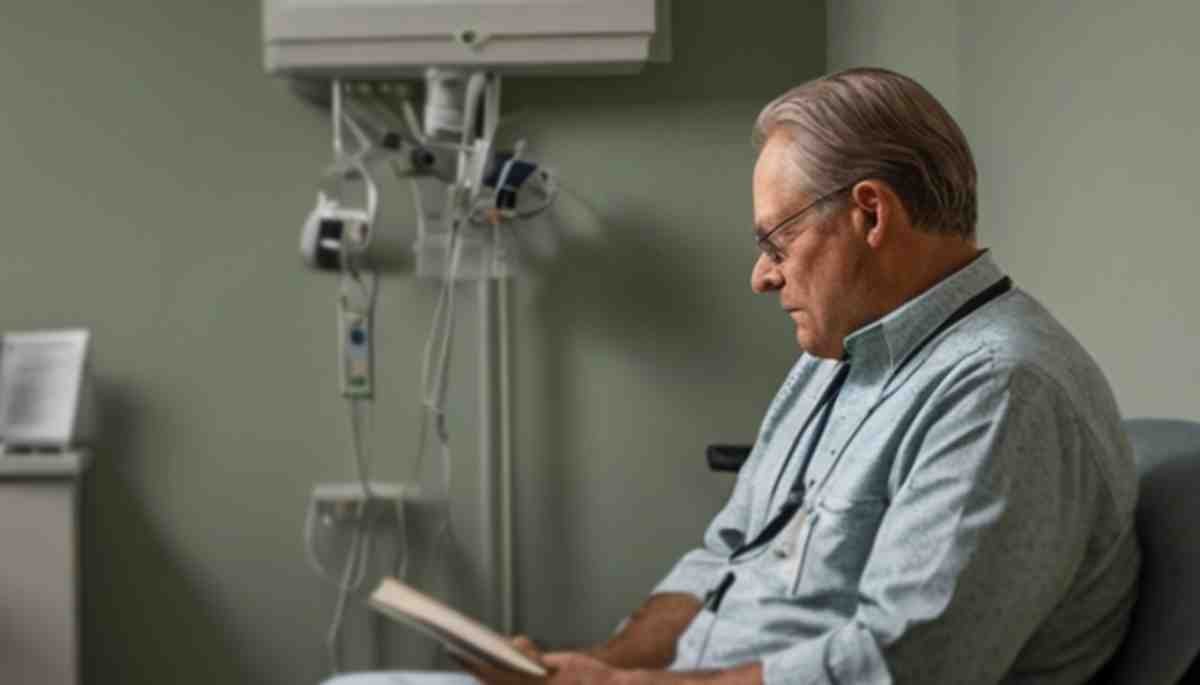As the world’s population ages, the mental health of elderly individuals becomes a critical issue. In Pakistan alone, the elderly population is expected to rise dramatically in the next few decades. With age comes a range of mental health challenges that can impact the quality of life, making specialized psychiatric care essential. Here are the most common mental health disorders faced by the elderly, effective treatments, and why addressing these issues is vital for the aging population.
1. Understanding Mental Health Challenges in the Elderly
Aging Brings Unique Challenges
Mental health in older adults is often misunderstood. It’s not uncommon to associate mental decline with aging, but conditions like dementia, Alzheimer’s disease, Parkinson’s disease, depression, and anxiety are not just “part of growing old.” These disorders require professional diagnosis and treatment to ensure elderly patients maintain a good quality of life.
Dementia is among the most well-known conditions in older adults. It affects memory, cognitive ability, and daily function. Similarly, Alzheimer’s disease, a form of dementia, gradually erodes an individual’s ability to think, remember, and function independently.
Depression is another silent problem, affecting up to 18% of elderly individuals, but it’s often misinterpreted as sadness or loneliness, delaying diagnosis and treatment.
The Impact on Families and Caregivers
These disorders don’t just affect the elderly; they also place emotional and physical burdens on families and caregivers. It is critical to understand these challenges so that timely and effective support can be provided.

2. Common Disorders in Elderly Mental Health
Dementia and Alzheimer’s Disease
These disorders significantly alter cognitive abilities, making it difficult for individuals to perform basic activities. Early signs include confusion, forgetting familiar names, and difficulty following conversations. Alzheimer’s, a progressive form of dementia, worsens over time, leading to complete memory loss and personality changes.
Depression and Anxiety
Older adults often face depression due to isolation, loss of loved ones, or declining health. It manifests as a persistent low mood, lack of energy, and a reduced interest in activities. Anxiety, on the other hand, may appear as extreme worry or fear, often without an obvious cause. Both conditions are treatable but need early intervention.
Bipolar Disorder and Schizophrenia
While less common, bipolar disorder can emerge in elderly patients, characterized by mood swings between emotional highs and lows. Schizophrenia presents with delusions and hallucinations, which can be particularly dangerous if left untreated.
3. Effective Treatments for Elderly Patients
Medication Management
Treating elderly patients requires a careful approach. Antidepressants like SSRIs (Selective Serotonin Reuptake Inhibitors) are often prescribed for depression and anxiety. Antipsychotics help manage the symptoms of schizophrenia and bipolar disorder. However, doctors need to monitor elderly patients closely to avoid side effects and interactions with other medications.
Cognitive Behavioral Therapy (CBT)
For many elderly patients, therapy can be just as effective as medication. CBT is a popular option, focusing on changing negative thought patterns. It is particularly effective for treating anxiety and depression.
Electroconvulsive Therapy (ECT)
In severe cases of depression, ECT may be recommended. While controversial, ECT has proven to be effective in cases where medication does not work, offering fast relief from severe symptoms.
Holistic and Family-Based Approaches
Treatment often requires a multidisciplinary approach involving doctors, psychologists, and social workers. Family therapy is also crucial, as caregivers need to understand how to best support their loved ones. The emotional support system around the patient plays a significant role in their recovery and quality of life.
4. The Role of Psychiatrists and Geriatric Specialists
Why Specialized Care is Necessary
Treating elderly patients requires a nuanced understanding of how aging affects mental health. Geriatric psychiatrists focus on this intersection, offering solutions tailored to the specific needs of older adults. These specialists also account for physical comorbidities—like heart disease or diabetes—that can complicate mental health treatment.
Top Geriatric Psychiatrists in Pakistan
In Pakistan, experts like Dr. Ghulam Hassan, Dr. Farasat Ali Dogar, and Dr. Aneel Kumar are making strides in providing comprehensive care for elderly mental health. With years of experience in treating age-related disorders, they emphasize early diagnosis and tailored treatment plans to improve quality of life.
5. Addressing Misconceptions Around Aging and Mental Health
Mental Health Decline is Not Inevitable
One of the most harmful misconceptions is that mental health inevitably declines with age. This belief often discourages early intervention. In reality, many mental health conditions in elderly patients can be managed or even prevented with the right treatment.
The Importance of Early Diagnosis
Early diagnosis is key. Detecting Alzheimer’s or depression in its early stages can prevent a rapid decline and improve life expectancy. Families need to be vigilant about changes in behavior and seek professional help promptly.
Conclusion
Elderly patients deserve mental health care that is compassionate, effective, and proactive. Disorders like dementia, depression, and anxiety are common but manageable with timely treatment. Geriatric psychiatrists play a crucial role in addressing the unique needs of older adults, ensuring they live dignified, fulfilling lives. By breaking down the stigma surrounding mental health in the elderly and advocating for early intervention, we can help improve their quality of life.
